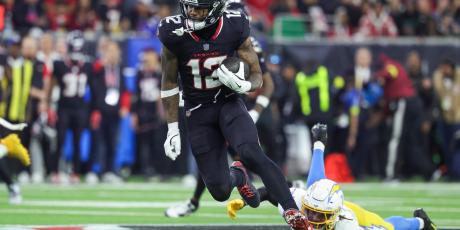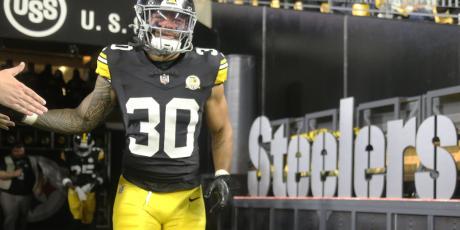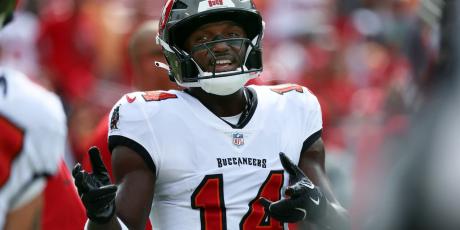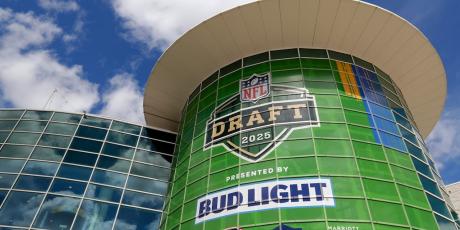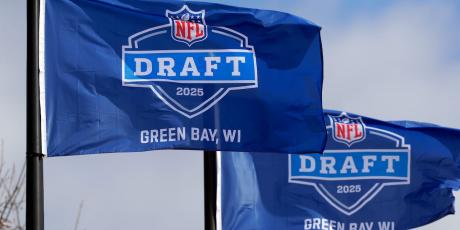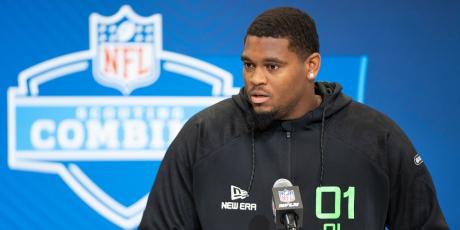NFL Draft Fallout: Winners and Losers

With the NFL Draft behind us, we’re at the point in the offseason when I put on my spelunking hat and head into the rankings cave to put together our preseason projections. But before I disappear into the darkness, here are a few post-draft winners and losers.
Winners
Most of the Ravens
Despite the hire of pass-happy Marc Trestman as offensive coordinator, it was shaping up to be a rough offseason for Joe Flacco, given the loss of Torrey Smith and the uncertainty at tight end. But the Ravens addressed both needs in the draft, nabbing a big speedster, Breshad Perrmian, at receiver and the top tight end in the draft, Maxx Williams, in the second round. Now Flacco has the offensive system and the weapons to be a great value in the later rounds. Other winners in Baltimore are Perriman and Williams, who landed in a great situation, and Justin Forsett, since the team didn’t address the running back position until the 4th round (Javorius “Buck” Allen). Forsett should be a safe RB2, especially in PPR, since Trestman loves to throw to his running backs.
The Dallas Running Backs
Darren McFadden, Joseph Randle and Ryan Williams should be feeling good coming out of the draft since the team didn’t spend a single pick on the running back position. They will battle it out for the honor to run behind the Cowboys’ excellent offensive line. I think Randle has the edge since he has proven he can thrive in the offense (6.7 YPC last season), but the team did go out and sign McFadden, so they must believe in him to some degree. Williams looked good in the preseason last year, and is the dark horse in this race.
QB Sam Bradford, Eagles
Before the draft, it sounded like the Eagles were a real threat to move up and draft Marcus Mariota, but it never came to fruition. That means Bradford heads into the summer as the starter in Chip Kelly’s high-octane offense. Over the last two seasons, Philadelphia quarterbacks have averaged 16.7 (passing game-only) fantasy points. Bradford isn’t much of a runner, but he typically adds about 0.7 FP per game as a rusher. That adds up to 17.4 FP per game, or about what Eli Manning averaged as the #13 QB in 2014. The loss of Jeremy Maclin was addressed in the first round when the Eagles drafted Nelson Agholor, so Bradford should have enough weapons to be effective. He’ll be a solid streaming/committee option as long as he’s the starter in Philly.
RB Melvin Gordon, Chargers
Gordon landed in the best situation of any rookie running back. He should immediately take over as the feature back, and although the Chargers may bring him along slowly in the passing game (since they have Danny Woodhead), he should see plenty of touches in his first season.
RB Jonathan Stewart, Panthers
Earlier this offseason, head coach Ron Rivera said he wanted to limit Stewart to around 15 carries per game with a complementary back getting 8-10 carries. The worry was that the Panthers would draft a running back early, but they waited until the 5th round before taking Cameron Artis-Payne out of Auburn. This doesn’t mean Stewart will get 20-25 carries per game, but he should see the 18 or so touches that he averaged with DeAngelo Williams sidelined in 2014. For more on his upside, check out The Case for Jonathan Stewart.
QB Jameis Winston, Buccaneers
It was pretty obvious that the Bucs were going to take Winston #1 overall, and the pieces are in place for some decent fantasy production in his rookie season. He has a good receiving corps in Mike Evans, Vincent Jackson and second-year TE Austin Seferian-Jenkins, and the Bucs addressed the offensive line by using their two 2nd round picks on a tackle and a center. Consider Winston a streaming/committee option in 2015.
TE Josh Hill, Saints
The Saints love what Hill brings to the table, but I was still half expecting the team to draft a tight end early. Instead, they ignored the position completely, which I infer as a big vote of confidence in Hill. He’s currently going at the end of the 11th round in early best ball drafts.
QB Jay Cutler, Bears
There were reports the Bears were close to trading up to #2 to draft Marcus Mariota, but they stuck at #7 and selected Kevin White. So not only does Cutler keep his job, but he also gets to throw to one of the draft’s best receivers.
Losers
RB Tre Mason, Rams
Mason was going in the 3rd round in early fantasy drafts, so that whooshing sound you hear is his ADP falling into the middle rounds after the team took Todd Gurley in the 1st round. Gurley is recovering from an ACL tear and there’s no guarantee he’ll be ready to play early in the season, but anyone drafting Mason shouldn't expect him to start the entire season.
RB Branden Oliver, Chargers
Oliver’s dreams of being the RB1 in San Diego were squashed when the Chargers took Melvin Gordon in the first round. He’ll now likely serve as a change-of-pace behind the talented rookie.
WR Donte Moncrief, Colts
Moncrief hasn’t been able to catch a break since the team parted ways with Reggie Wayne and Hakeem Nicks. First, the Colts signed Andre Johnson, bumping Moncrief down a spot in the pecking order and then (out of nowhere) they drafted speedster Phillip Dorsett in the 1st round. Moncrief is going to have to compete with Dorsett to be the team’s WR3. Yikes.
RBs Isaiah Crowell & Terrance West, Browns
I was already dubious about Crowell’s 5th-round ADP given his (not dominant) 90-to-68 touch ratio with Terrance West over the final seven games. Now the Browns are adding a 3rd-round running back, Duke Johnson, to the mix. Even if someone “wins” the starting job, remember that late in the season head coach Mike Pettine was handing out touches to Crowell and West based on their practice performance. In short, I want no part of this backfield.
RB Devonta Freeman, Falcons
It was something of a long shot that the Falcons would go into the season with Freeman as their featured back. They drafted Tevin Coleman in the 3rd round, so look for a Coleman/Freeman committee, with Freeman getting most of his work in the passing game. And don’t forget that the team re-signed Antone Smith, who has been incredibly productive (521 yards and seven touchdowns on just 48 touches) over the past two seasons.
WR Kenny Stills, Dolphins
Before the draft, it looked like Stills was going to replace Mike Wallace in Bill Lazor’s offense, but then the Fins selected DeVante Parker with the #14 pick. Parker may not immediately start, but Stills is going to have to hold off the talented rookie (or beat out the emerging Jarvis Landry) if he hopes to stay fantasy relevant for the entire season.
RB Theo Riddick, Lions
Had the Lions stood pat at running back, I was looking forward to drafting Riddick in the later rounds in all of my PPR leagues – he averaged solid RB2 numbers in that format with Reggie Bush sidelined last season – but once the Lions took Ameer Abdullah in the 2nd round, those dreams were dashed. I expect Abdullah will assume Bush’s old role and post top 25 numbers in PPR formats.
WR Marques Wilson, Bears
Wilson was penciled in as the team’s WR2 after the Brandon Marshall trade, but that’s why pencils have erasers. The Bears took Kevin White with the #7 pick, and he’s fully expect to start opposite Alshon Jeffery. Wilson will have to compete with Eddie Royal for snaps as the team’s WR3.

